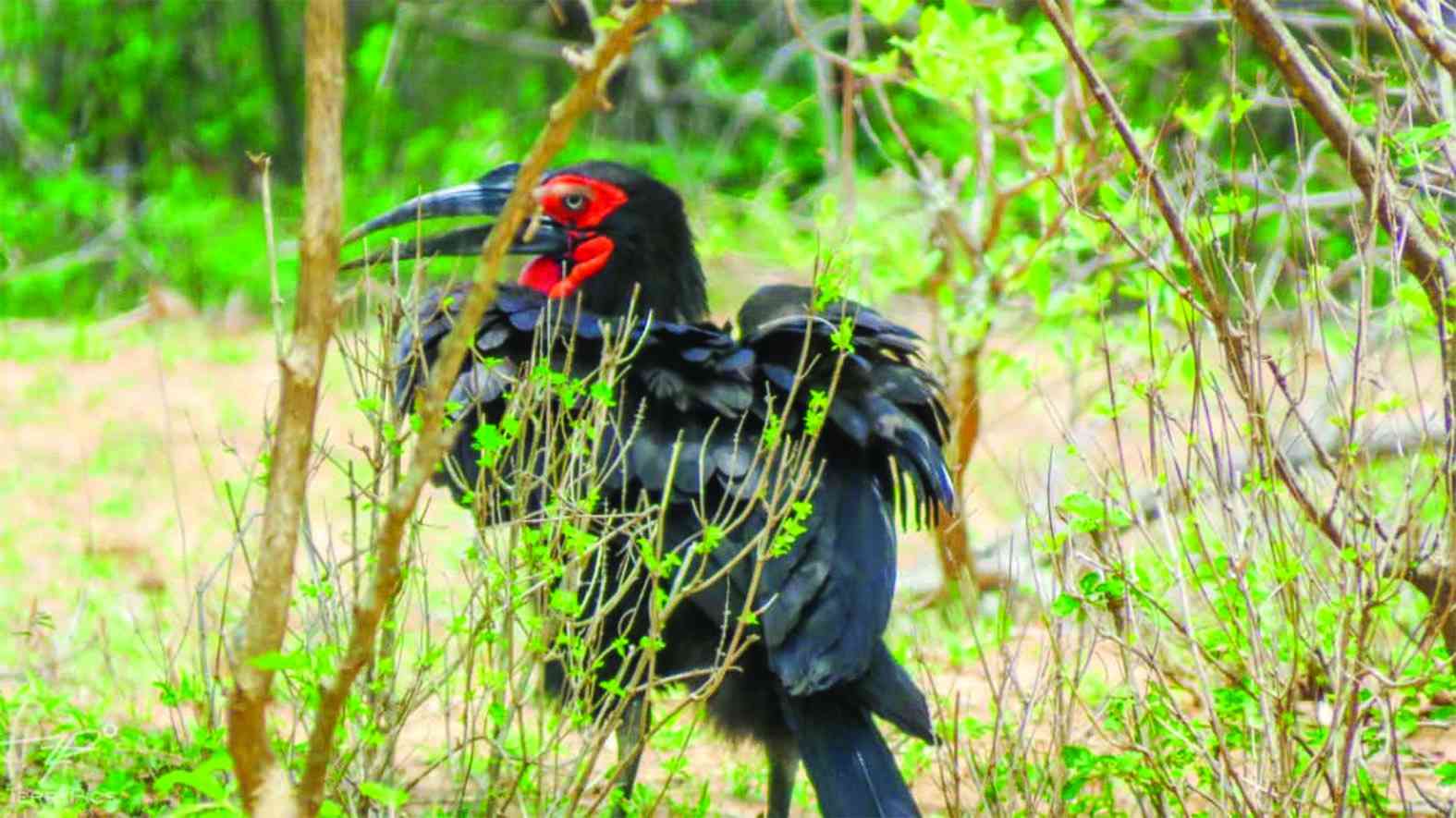
THE majestic yet vulnerable bird species that had made the sun-baked savannas of Mafuratidze village under Chief Kereke in Bikita East district, Masvingo province, home is facing extinction.
The southern ground hornbill, with its distinctive red throat patch and haunting calls, has long been a familiar sight in this village’s landscape.
However, in recent years, the changing climate has cast a shadow over the bird’s future.
Rising temperatures, changing rainfall patterns and increased frequency of extreme weather have disrupted the delicate balance of the ecosystem, leaving the southern ground hornbills struggling to adapt.
As a result, their populations are dwindling and their iconic presence in Bikita’s savannas, about 310km from Harare, the capital city, is under threat.
The plight of these magnificent birds serves as a painful reminder of the far-reaching consequences of climate change and the urgent need for conservation efforts to protect the country’s unique and fragile wildlife heritage.
Tinashe Rwambiwa (49), a village head, was at pains to explain the disappearance of southern ground hornbills in his area and the surrounding communities considering their important role in balancing nature’s ecosystem.
“Growing up, we used to see, hear and be entertained by the deep-bass booming ‘oooh… oooh… ooh-o’, which would be heard several kilometres away, but today, the loud echoes have gone quiet,” he said.
- Baobab tree faces extinction
- Lifeline for Gonarezhou smallholder farmers
- Hyenas rampage Chiredzi
- Zim’s dilemma over deadly elephant attacks
Keep Reading
“Their near disappearance is worrying to say the least because their presence culturally in the area is a sign of good omen and also means the area will receive enough rains, which, in turn, bring about a bumper crop harvest.”
Culturally, it is taboo to kill or eat a southern ground hornbill as this brings misfortunes to the community and it also attracts a heavy fine.
“I don’t really know what is killing or what drove away the hornbills, but if there are some unruly elements within the villagers, it attracts a fine of a buck goat and six 20-litre calabashes of traditional beer,” the village head said.
“We normally hand out such harsh sentences to deter would-be offenders.”
Southern ground hornbills taskforce leader Terry Peter, who works at BirdLife Zimbabwe, a member of the International Union for the Conservation of Nature which promotes the survival of bird life and biodiversity in Zimbabwe and elsewhere for both its natural value and the enjoyment of future generations, also gave his input about the bird.
“The near disappearance of the birds is also due to change in land use. The more we clear land for farming or resettlement, the more we encroach and destroy the big trees which are crucial for their nesting. As a result, they go away.”
Added Peter: “The secondary point is that of poisoning and snares. Southern ground hornbills scavenge on carcasses.
“Some of them will be poisoned, which will result in the birds dying and because breeding is slow, it will take a long time to get going again, if at all.
“Snares which are set to catch maybe hares and small antelopes can also catch these birds and that has been a major problem in communal areas.”
Although the vulnerable bird is facing challenges, to stop it from facing extinction, a solution has to be found, which demands all hands to be on deck.
“For starters, it is awareness that the southern ground hornbill is vulnerable and going extinct. Secondly (there is need) to stop destroying the habitats that we still find these birds,” Peter said.
“The birds are so important in controlling the ecosystems such as feeding of mice, snakes and other rodents which are pests or threaten human beings.
“On top of that, they are of economic value. As an edge species, you will have tourists come in to see them.”
Said Zimbabwe Parks and Wildlife Management Authority director-general Edson Gandiwa: “Climate change has severely impacted on the southern ground hornbills’ population.
“Droughts have resulted in habitat destruction of such birds due to limited feed and water availability.”
He added: “Intense use of agro-chemicals in communal areas may have contributed to the loss of southern ground hornbills.”
The loss of southern ground hornbills is not just an environmental tragedy; it also has significant cultural and ecological implications.
As a keystone species, the vulnerable birds play a vital role in maintaining the balance of ecosystems and their absence will have far-reaching consequences to the food chain.
The near disappearance of the bird is a wake-up call for villagers to acknowledge the reality of climate change as well as human activities and take immediate action to mitigate their effects.
Humans must work together to reduce the carbon footprint, invest in renewable energy and implement sustainable land-use practices that prioritise the conservation of biodiversity.
They are also reminded of the fragility of life and the importance of preserving the natural world for future generations.
The memory of these magnificent birds will continue to inspire many to act, to innovate and to find solutions to the climate crisis, in the hope that one day, they may return to not only Bikita villages, but other areas across the country, so that their booming calls can one again echo across the savannah.










